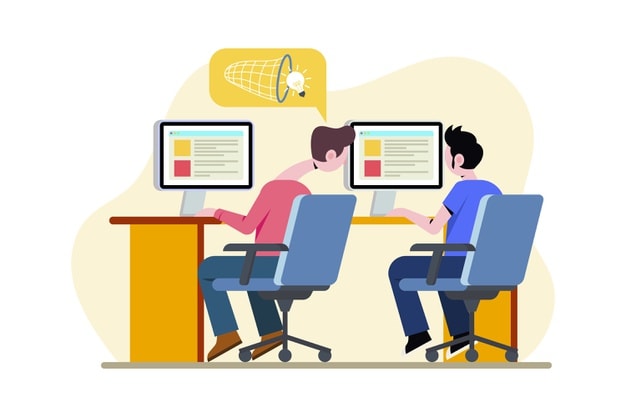Research skills are essential to many employers since they help the organisation to develop new products and services, identify the wants and needs of the customer and improve in what they do to keep up with the competition in the industry and the market. Having research skills is an important trait which you can highlight to your employers and also help you in your career path.
Definition: it is the ability to find a solution and answer to a question. It includes the ability to collect relevant information regarding the topic, review on that information and interpret after analysing the information.
Research skills are essential which every candidate should possess while applying for jobs. Research skills are useful even in non-research areas, and such candidates are valued in almost every company or every sector. Having these skills will make your research process smoother, and you will be able to complete your research earlier than time.
Before you work on your research skills, you must have good knowledge about the research and the field in which you are doing the research. Technical expertise, along with research skills, will make it a success since one without another is incomplete.
Table of Contents
Importance of Research Skills
Research skills are loved by employers all around. This is because research is a vital part of the business and it helps the companies in many functions such as report writing, developing new products, keeping track of competitors, identifying the needs of the customer, keeping up with ever-changing technologies and improvements in the market, etc
Research skills also show companies that you will be able to suggest new ideas and assist the research and development team of the business in adapting to their changing world and dynamic market. Research helps to save money.
Launching a new product can be very expensive for a company and not to mention very risky also. The research will help the companies to predict if any customer will buy the product. It helps to predict the viability of the product in the market.
Research helps to minimise the risk, which companies take while launching the product. Also, research helps to analyse the competitor activities and determine the right course of action to get a competitive edge in the market and in turn, better business by increasing the number of customers.
Top research skills
Research skills often vary like research. For example, research which involves collecting primary information by the method of surveys then you have the expertise to form questionnaire, or if the research suggests data mining, then those are the skills that you should have.
However, following are few research skills which are common to every stream or industry or any research topic:
1. Searching information
Every researcher has to search for information from many sources. They may be primary sources or secondary sources. The researcher has to analyse the available information and the gathered information and then use it in his research.
This information is also analysed to solve the research. The researcher has to have the skill of searching for information and digging out the necessary part of that search for his research. Internet research skills are especially valued everywhere.
The Internet consists of a lot of data and information. Some information is accurate while some of it is false. The researcher needs to have the skills to distinguish correct details from the falsified information.
The reliable information will have links and sources from which the information is received, while the information which is not credible will be without bibliography or references.
2. Attention
The researcher should have the skill to pay close attention to details. It is a crucial skill not only for research but also for all the tasks at work. You may have chalked responsibilities like specifying procedures and policies and implementing them which are given by the company.
This means that you have to understand the details yourself first, and then you can ensure that others implement it.
Identifying the needs of the customer, knowing exactly what will be the limitations of your research, what are the alternative ways that you can find information which has not been tried, are few of the things which require extreme care and attention to specifics.
3. Notes
You will encounter a lot of information while conducting your research. For example, if you’re collecting primary data, then there may be a lot of information which is coming to you which you may not have asked for, but you think you might require it at some point in the research. You must have the skills and ability to make notes of all such information.
This information may or may not be used for your research, but you must collect it and store it safely.
The information should also be accessible to you, and the note should be clear and legible so that even if you look at it after many weeks, months or years, not only you but anyone who reads it should understand. Note-taking is a valuable skill to have in research as well as in non-research jobs.
4. Time Management
Time management is the skills in which you break down the entire project into small manageable parts. You have to approach the project with the deadline so that you complete the project before the stipulated time. Similarly, shorter deadlines should be applied to small sections which you have broken down and complete them accordingly.
Time management also involves setting objectives, planning for it, organising and completing the task. The better you are at the time management, the better your research will be.
Apart from research skills time management is a valued skill for every employer
5. Problem-solving skills
The ability to manage stressful situations and overcome complex challenges in business is called problem-solving skills. Problem-solving skills are essential in research because the research itself is a big problem which you are going to provide a solution.
You have to analyse the available information critically, understand what are the resources with you and solve the problem. You may encounter numerous problems in your research process. For some problems, you can approach your peers, research guide and industry experts. But if you continuously approach someone for your problems, then it may not go well.
Not only with your research be devalued, but even though you will be able to complete the research, you may never have the complete knowledge of it. This is why problem-solving skills is an essential skill to have.
6. Communicating results
When you understand a result correctly then only you can communicate it properly. You have to present the information in a way that others can understand and comprehend your solution.
Communication involves verbal as well as non-verbal communication. Non-verbal communication is more important, but in the case of a research presentation, both verbal and non-verbal skills are necessary equally.
You have to develop active listening, excellent observation skills and fluent and natural speaking skills, which are a part of communication skills.
Excellent communication skills are something that employers are always looking out for, And it will help to boost your career since they are equally valued in non-research areas of the job as well.
Improving research skills
Following are the tips which you can use to improve your research skills.
1. Define the research properly
Defining the research properly as it relates to the area or assignment gives the research students the context which this act and the context that they require. More than 50% of students say that class discussions about conducting research are helpful for them.
You must define your research correctly and in sync with your division or speciality.
Well defined research is half work done if you are not aware of the research or its steps or you are partly knowledgeable about it so that you must ask your faculty or your research guide about the details of your research process.
2. Break down the research into smaller parts
Handling the entire research process at once, is a cumbersome thing. Especially for someone who is doing their first research. It is efficient to break down the research into manageable parts.
You can first work on the proposal of the topic then you can start on secondary research. Once you have a comparative framework of your research, then you can proceed with primary research, analysis of primary research and preparation of the report.
Instead of preparing the final report directly, work on making a draft which can be edited easily. Get the draft checked and evaluated from various research guides and use their inputs to improve your research.
3. Avoid plagiarism
Plagiarism is something that should be avoided. Best research reports have no plagiarism. This not only deteriorates the quality of the research but also reduces your value as a researcher. Plagiarised research is worse than having no research.
A small percentage of plagiarism is acceptable such as 2 – 5% but beyond that deteriorates the research. Find authentic first-hand information which will reduce your plagiarism and try to search on new perspective rather than copying second-hand information.
There are many software available these days which check for plagiarism in seconds and can direct you to the source from which the information is taken.
4. Research evaluation
Be accurate about how the research will be evaluated. If you have access to, then study the sample research and see how they were evaluated, what went wrong, what was right.
It is difficult for research students to define the expectations of their professors and evaluators. This is why they must work on the evaluation procedures before submitting the work and avoid the mistakes that can be avoided.
5. Consultant a librarian
Very few researchers think of consulting a librarian when doing their research. A lot of students said that they do not seek help with the librarian with the research related to the course. This is why many of the researchers end up getting frustrated or not finding the required resources for their study.
Finding through library database is a humongous task in itself. They need the help of a librarian who is expert in navigating through the library and in planning your research strategy.
They can locate any available book in the library within seconds or minutes, and on the contrary, a student who is not aware of navigating through the library will take hours on end to get the book. There are many online services available for the library in which the students can use to improve their research.
Liked this post? Check out the complete series on Market research

